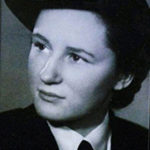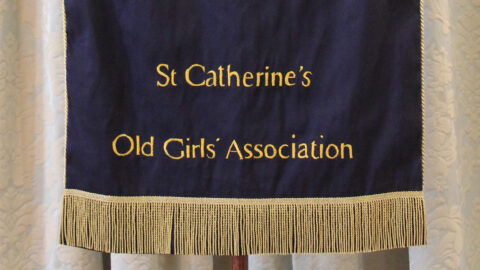Edith Jessie Flanders

Edith Jessie Flanders
Edith (Jessie) Flanders (Edgar ’39) became a decoder in 1943 at the Monterey Unit in Melbourne, an outpost of Bletchley Park, the famous British institution that broke the German codes. Jessie worked on the Japanese Codes in absolute secrecy. The work of Monterey has been widely credited with bringing World War II to an earlier close and saving countless lives.
Her introduction to the war effort began when she volunteered at the age of 22 and was given one week’s training on deciphering before joining the Special Intelligence Bureau, later to become FRUMEL (Free Radio Unit Melbourne). Jessie, formerly known as RANS EJ Edgar 2158, Leading Writer, worked in an apartment block in Queens Road, St Kilda.
Her work and the contribution of her colleagues was not recognised by Australia for secrecy reasons. They had signed and sworn to the Secrecy Act and would have been court-martialled had they spoken about their work. The British recognised the work of their decoders only recently and Jessie received a citation and a medal from then British Prime Minister, The Right Honourable David Cameron with the words, “Deepest gratitude on behalf of the British Government for the vital service performed during World War II.” Her name is also inscribed on the Harrow war memorial.
After three years in the navy, Jessie went back to the family farm for a break, met returned fighter pilot, Bob Patterson, and married. They made their home at Warrock Homestead and built a thriving sheep station, one of the most revered in Victoria. Jessie and Bob had three children, Robert, Richard and Annie. Jessie never revealed to Bob what her role in the war had been and it was only decades later that she began to share her extraordinary history with family. Her children discovered that her role was a significant one and one that seemed quite unbelievable.
Jessie felt that the stories of women in war were really only beginning to surface in the last few years and that it was important to keep the stories alive and honour the women who were no longer alive, as war is terrible and it must always be remembered. Throughout her life she contributed to communities ranging from the RSL, Red Cross to School Councils and the building of the Baby Health Centre; a donor to many good causes. Jessie exercised her mind by reading widely throughout her life, and later – writing. Her historical novel published on her 90th birthday, traced the story of the Kelpie dog breed – His Own Man. Using the oral history from her father-in-law George Patterson, she conducted the research, wrote the 90,000 words and sold 3,000 copies.
Jessie was married and widowed twice. First to Bob Patterson then to John Flanders in Casterton. Throughout her life she played competitive golf and later, croquet. She then took to competitive bridge. Jessie passed away in her 100th year in August 2020.


